 The incidence of Type 2 diabetes (T2D) in the UK has more than doubled since the turn of the millennium.[1]Today, more than 3.8 million people in Britain have been diagnosed with diabetes, with around another 1 million estimated to be unaware that they are living with the disease.[2]This equates to more than 5% of the entire population, and with that population aging and a quarter of adults now obese, this figure is likely to continue increasing in the near future.[3],[4]Of those living with diabetes, around 90% have Type 2.[5]
The incidence of Type 2 diabetes (T2D) in the UK has more than doubled since the turn of the millennium.[1]Today, more than 3.8 million people in Britain have been diagnosed with diabetes, with around another 1 million estimated to be unaware that they are living with the disease.[2]This equates to more than 5% of the entire population, and with that population aging and a quarter of adults now obese, this figure is likely to continue increasing in the near future.[3],[4]Of those living with diabetes, around 90% have Type 2.[5]
Diabetes incidence and glucose intolerance has also been associated with rising temperatures, which can alter insulin absorption and diffusion, as well as various counter-regulatory hormones that can significantly impact acute or even chronic glycaemic management.[6]Researchers have posited that on average, for every 1°C the temperature increases, age-adjusted diabetes increases by 0.3 per 1000 people.[7]With climate change well under way and temperatures likely to continue to rise, even a comparatively small effect could see millions more people develop the condition.
Inflammation complications
Inflammation is a natural reaction to infection and injury, playing an integral role in our body’s immune response and healing processes. However, when inflammation becomes chronic, it can become counterproductive to a patient’s well-being, resulting in a wide-variety of inflammatory conditions.[8]Both obesity and T2D cause chronic low-level inflammation in the patient.[9]
Diabetes is associated with a substantially increased susceptibility to infection of all kinds, compared to the general population. This is further compounded when patients have synergistic risk factors, such as smoking.[10]Infection can, of course, result in sustained inflammation.
Chronic inflammation plays a key role in gingivitis, periodontitis and peri-implantitis, resulting in tissue damage and destruction. This inflammation is primarily the effect of the immune system responding to an overgrowth of bacteria in the oral cavity.[11]It has long been theorised that systemic inflammatory diseases increase the risk of periodontal diseases. However, whether the presence of the former actually causes the latter, or if they simply share disease pathways, has been difficult to determine.[12]
While we may not know for sure if it is a causative factor, T2Dis significantly associated with periodontitis. Some research indicates that this is especially true among males, due to their lower levels of compliance with good oral hygiene practices (on average, men are more likely to fail to brush twice a day, etc.). All patients must be encouraged to maintain good oral hygiene, and extra vigilance should be paid to high risk demographics in order to minimise preventable complications.[13]
Controlling diabetes
Whether a patient’s diabetes is under control significantly modifies the risk it poses. Research indicates that patients with poorly controlled diabetes are around twice as likely to develop peri-implantitis as those where it is well managed. Likewise, implant patients with poorly controlled diabetes generally exhibit lower stability ratings in the first 2-6 weeks, indicating delayed osseointegration. Stability measurements do eventually reach parity with those without the condition and those where it is well managed, however, this takes twice as long.[14]
Diabetes has systemic repercussions, such as increasing the risk of cardiovascular disease (CVD) and microvascular complications over time. Quite simply, the longer a person has lived with the disease, the greater the risk of developing related complications like ischemic heart disease and neuropathy. While T2D has classically been associated with the elderly, early onset diabetes (regarded as beginning prior to the age of 40) is increasingly common in the UK. Consequently, these patients can expect to face this these types of complications sooner.[15]It is therefore advisable to, where possible, learn and consider how long a patient has been living with the condition – as their metabolic health could more resemble an older individual’s than their age would suggest.
Reducing the risk of infection is critical to minimising complications from dental implant therapy, and this is especially important for patients who already have systemic health issues. Selecting a high-quality implant solution helps minimise the chance of infection and is beneficial for all patients, particularly for those with compromised health. TBR’s Z1®implant features an innovative zirconia collar that acts as an antibacterial shield to minimise the risk of infection. Indeed, zirconia surfaces demonstrate a lower affinity to bacteria compared to titanium.[16]This helps to protect the crestal bone and the gingiva from iatrogenic inflammation, encouraging the soft tissue to heal around the implant in a manner that closely resembles natural gingival growth.
Dental implants are safe for diabetic patients, and where good glycaemic control and oral hygiene is maintained, implant survival is in line with those without the condition.[17]However, because these patients are at increased risk of various complications, and in many cases will have comorbid conditions that can further influence their health, it is important that they are regularly checked for developing problems.

For more information on the Z1®implant, visit tbr.dental, email support@denkauk.comor call 0800 707 6212
References
[1]Sharma M., Nazareth I., Petersen I. Trends in incidence, prevalence and prescribing in type 2 diabetes mellitus between 2000 and 2013 in primary care: a retrospective cohort study. BMJ Open. 2016; 6(1): e010210. https://bmjopen.bmj.com/content/6/1/e010210May 20, 2019.
[2]Diabetes UK. Diabetes Prevalence 2018. Diabetes UK.2018. https://www.diabetes.org.uk/professionals/position-statements-reports/statistics/diabetes-prevalence-2018May 20, 2019.
[3]ONS. Overview of the UK population: November 2018. Office for National Statistics.2018. https://www.ons.gov.uk/peoplepopulationandcommunity/populationandmigration/populationestimates/articles/overviewoftheukpopulation/november2018May 20, 2019.
[4]Baker C. Obesity statistics. House of Commons Library. 2018. https://researchbriefings.files.parliament.uk/documents/SN03336/SN03336.pdf
May 20, 2019.
[5]Diabetes UK. Facts & figures. Diabetes UK. 2019.https://www.diabetes.org.uk/professionals/position-statements-reports/statisticsMay 20, 2019.
[6]Kenny, G. P., Sigal, R. J., & McGinn, R. (2016) Body temperature regulation in diabetes. Temperature (Austin, Tex.). 3(1): 119–145. doi:10.1080/23328940.2015.1131506. https://www.ncbi.nlm.nih.gov/pmc/articles/PMC4861190/.May 20, 2019.
[7]Blauw L., Aziz N., Tannemaat M., Blauw C., Craen A., Pijil H., Rensen P. Diabetes incidence and glucose intolerance prevalence increase with higher outdoor temperature. BMJ Open Diabetes Research & Care. 2017; 5: e000317. https://drc.bmj.com/content/5/1/e000317May 17, 2019.
[8]Cekici A., Kantarci A., Hasturk H., Van Dyke T. Inflammatory and immune pathways in the pathogenesis of periodontal disease. Periodontology 2000. 2014; 64(1): 57-80. https://www.ncbi.nlm.nih.gov/pmc/articles/PMC4500791/May 20, 2019.
[9]Schaeffler A. Is diabetes and inflammatory disease and be treated like that. Annals of Rheumatic Diseases. 2017; 76(Suppl. 2): 39. https://ard.bmj.com/content/76/Suppl_2/39.1May 20, 2019.
[10]Carey I., Critchley J., DeWilde S., Harris T., Hosking F., Cook D. Risk of infection in type 1 and type 2 diabetes compared with the general population: a matched cohort study. Diabetes Care.2018; 41(3): 513-521. http://care.diabetesjournals.org/content/41/3/513May 20, 2019.
[11]Cekici A., Kantarci A., Hasturk H., Van Dyke T. Inflammatory and immune pathways in the pathogenesis of periodontal disease. Periodontology 2000. 2014; 64(1): 57-80. https://www.ncbi.nlm.nih.gov/pmc/articles/PMC4500791/May 20, 2019.
[12]Winning L., Linden G. Periodontitis and systemic disease. BDJ Team. 2015; 2: 15163. https://www.nature.com/articles/bdjteam2015163May 20, 2019.
[13]Liu Y., Yu Y., Nickel J., Iwasaki L., Duan P., Simmer-Beck M., Brown L. Gender differences in the association of periodontitis and type 2 diabetes. International Dental Journal. 2018; 68(6). https://onlinelibrary.wiley.com/doi/full/10.1111/idj.12399May 20, 2019.
[14]Naujokat H., Kunzendorf B., Wiltfang J. Dental implants and diabetes mellitus – a systematic review. International Journal of Implant Dentistry. 2016; 2(1): 5. https://www.ncbi.nlm.nih.gov/pmc/articles/PMC5005734/May 20, 2019.
[15]Song S. Complication characteristics between young-onset type 2 versus type 1 diabetes in a UK population. BMJ Open Diabetes Research & Care. 2015; 3(1): e000044. https://drc.bmj.com/content/3/1/e000044May 20, 2019.
[16]Rimondini, L., Cerroni, L., Carrassi, A., Torricelli, P. Bacterial colonisation of zirconia ceramic surfaces: an in vitro and in vivo study. Int. J. Oral Maxillofac. Implants. 2002; 17(6): 793-798. Link: https://www.researchgate.net/publication/10969412_Bacterial_Colonization_of_Zirconia_Ceramic_Surfaces_An_in_Vitro_and_in_Vivo_Study. May 20, 2019.
[17]Naujokat H., Kunzendorf B., Wiltfang J. Dental implants and diabetes mellitus – a systematic review. International Journal of Implant Dentistry. 2016; 2(1): 5. https://www.ncbi.nlm.nih.gov/pmc/articles/PMC5005734/May 20, 2019.






 In modern dentistry, efficiency is key. Patient lists are getting larger, complex treatments are becoming more widely accessible and the demand for speedy treatment and rise in patient expectations means that without an efficient approach, practices will struggle.
In modern dentistry, efficiency is key. Patient lists are getting larger, complex treatments are becoming more widely accessible and the demand for speedy treatment and rise in patient expectations means that without an efficient approach, practices will struggle.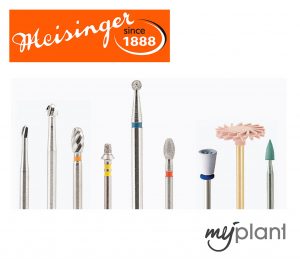
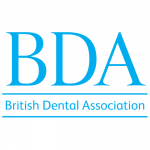

 Looking back over her time in dentistry, Bernadette said:
Looking back over her time in dentistry, Bernadette said: As we head into autumn, it’s time for thousands of individuals to begin higher education. In fact, in 2018 alone, over a quarter of all 18-year-olds from England, Wales, Scotland and Northern Ireland got accepted into universities – record breaking numbers that prove how popular higher education remains for those leaving secondary school.
As we head into autumn, it’s time for thousands of individuals to begin higher education. In fact, in 2018 alone, over a quarter of all 18-year-olds from England, Wales, Scotland and Northern Ireland got accepted into universities – record breaking numbers that prove how popular higher education remains for those leaving secondary school.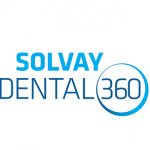
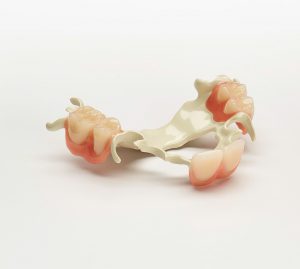
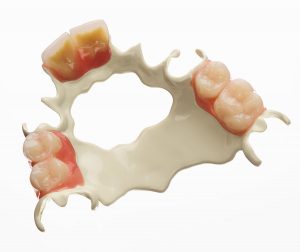
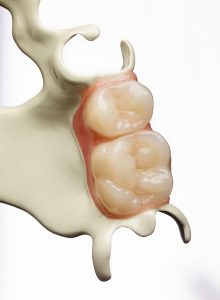
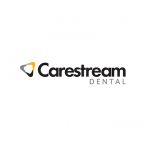




 The incidence of Type 2 diabetes (T2D) in the UK has more than doubled since the turn of the millennium.
The incidence of Type 2 diabetes (T2D) in the UK has more than doubled since the turn of the millennium.

 Luke Moore – Co-Founder of Dental Elite – presents the third instalment of his series of articles considering potential pitfalls of practice sales and acquisitions. Here we focus on problematic areas relating specifically to associates and dental hygienists.
Luke Moore – Co-Founder of Dental Elite – presents the third instalment of his series of articles considering potential pitfalls of practice sales and acquisitions. Here we focus on problematic areas relating specifically to associates and dental hygienists.

